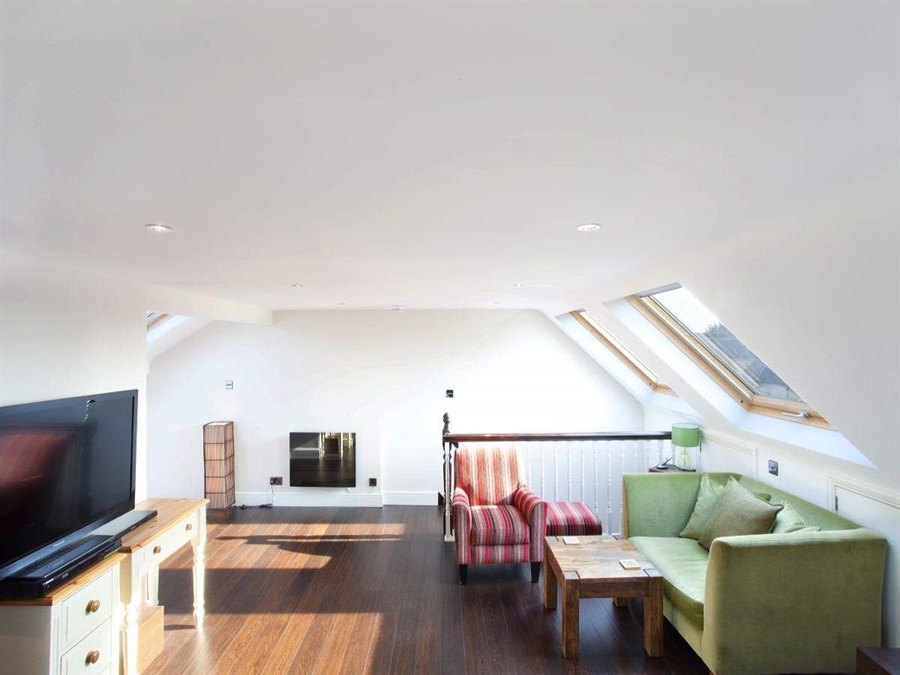
Did you know that many different designs and periods of property can benefit from a loft conversion? Although properties are built in different eras and styles, each type of property will be differently suited to an attic conversion and will have its own benefits. Whether you’re keen to make use of the roof space in your Victorian property, or would like to create a new build loft conversion, read on to see what’s possible.
Can a Victorian property have a loft conversion?
Victorian properties are ripe for a loft conversion. Many of these were built with a generous roof space which makes them perfect for an attic conversion. The head height will vary from property to property, but many Victorian houses opt for a dormer loft conversion to maximise head height within the new room.
Don’t forget that when it comes to Victorian terrace conversion ideas, many can benefit from an L-shaped build if the property has already had a double-storey extension to the two floors below. This transformation gives a large amount of extra space for your new storey.
Will an attic conversion work in a bungalow?
Bungalows are popular properties because of the large footprint they sit on. Therefore, when combined with an attic conversion, you will achieve a decent-sized home.
When thinking about a roof build within a bungalow, it’s a good idea to consider your entire home. For example, will it work better if you change the downstairs living into an open-plan design? Would it be best to transform the upper floor to the living room and open plan area, and the downstairs into bedrooms? Whatever design ideas you have for your bungalow loft conversion, talk them through with your builder to ensure they work well for your individual property.
Will a loft conversion suit a semi-detached property?
Whether a loft conversion will work in a semi-detached property depends on the construction of the loft. Also, the era in which the property was built is a key factor. For example, those properties constructed after the 1960s or with a truss roof will often require more structural work than older properties, because the rafters create a ‘W’ shape within the attic, taking up a lot of the habitable space.
However, as with almost all properties, there is usually a way around any problems arising from issues such as a truss roof, or a water cylinder that needs to be moved. Many semi-detached and end of terrace properties do not encounter any problems with converting their loft at all. Speak to your contractors to see whether there are likely to be any issues which may need to be addressed before your roof build project starts.
What to consider for a new build loft conversion?
Many people buy a new build property because they are ready to move into, with no renovation work required. However, plans and life do change over time, and you may get to a point where you’re ready to consider making use of the roof space in your new build home.
If you do wish to carry out a new build loft conversion, the attic space should be suitable for a transformation. However, there are certain things you need to consider in a contemporary style property. Firstly, a lot of modern properties are built with a truss roof, as mentioned earlier, which can result in a need for more structural work to convert the space. Some also do not have enough head height (2.3 metres minimum at the highest point), and this will need to be addressed.
The other consideration for new build properties is that many property developers place covenants on their developments which insist on any extension carried out on the properties to be in-keeping with the development as a whole. Whilst this doesn’t necessarily rule out a new build loft conversion, it can mean that restrictions are placed on it, such as no dormer windows being added, or having to use specific materials for the exterior. You may also need to seek permission from the developers, so check whether this is the case.
How can I check if my home is suitable for a loft conversion?
Whether your home is suitable for a loft extension will depend on a variety of aspects, although rest assured that most houses can have their roof space converted.
Get in touch with Bespoke Lofts today to start the process of checking whether your home is suitable for a loft conversion, and let us talk you through what will work for your individual property.